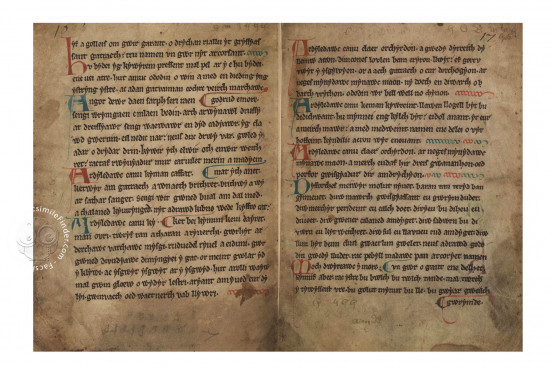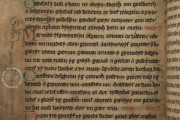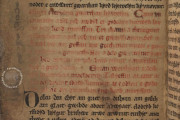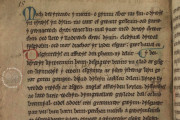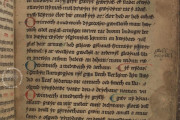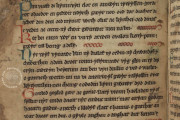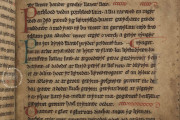The Book of Aneirin is one of the earliest surviving manuscripts of Welsh poetry. It dates to the second half of the thirteenth century when it was written by two monks possibly at the Cistercian abbey of Aberconwy, North Wales. They compiled the text from two separate documents, one dating perhaps as early as the seventh century. The monks may have been attracted to the verses that commemorated the fallen warriors of a great battle.
The manuscript contains the epic poem of commemoration, The Gododdin, along with additional shorter works. Decoration is limited to enlarged colored initials. The Old and Middle Welsh is written in a mannered Gothic Textura in long lines. The Book of Aneirin has inspired poets, scholars, and historians since the Middle Ages and is a priceless record of early medieval Brythonic culture.
Aneirin, an Early Medieval Brythonic Poet
Aneirin, or Neirin, was born sometime in the mid- to late sixth century perhaps in the Kingdom of Strathclyde. His work was likely preserved through oral tradition until the thirteenth century. He served Urien, king of Rheded, and accompanied the king's son, Owain, to the Battle of Catraeth, where the young prince was killed. Aneirin was later murdered by a rival lord who took offense when Anerin reproached him in his poetry.
The Gododdin, an Epic Work of Welsh Poetry
The main piece recorded in the Book of Aneirin is The Gododdin, a series of eulogies for the fallen heroes of the Battle of Catraeth, which took place around the year 600. An army of around 300 men from various regions of Scotland attacked Catraeth (perhaps Catterick, Northumbria). All but four, including Aneirin, were killed. Around eighty individuals are identified in the poem that survives today in a mixture of Old and Middle Welsh.
The Rediscovery of Early Welsh Poetry
The discovery of the Book of Aneirin was of enormous importance in the history of Welsh poetry, likened to the discovery of Homer's epic verses. It was owned by Welsh bard Dafydd Nanmor and scholar Gwilym Tew in the fifteenth century. Robert Vaughan acquired the manuscript a century later; it joined the Book of Taliesin and the Black Book of Carmarthen in his library. Sometime after its theft, the historian Thomas Price, also known as Carnhuanawc, also owned the book. It then resided for a time in England with Thomas Phillipps but was repatriated to Wales in 1896 when purchased by the Cardiff Free Library. It was rebound at the National Library of Wales in 1986. It was agreed in 2010 that the manuscript would be transferred to the National Library of Wales, while the Cardiff Council retains ownership.
We have 1 facsimile edition of the manuscript "Book of Aneirin": Llyfr Aneirin facsimile edition, published by National Library of Wales, 1989
Request Info / Price
